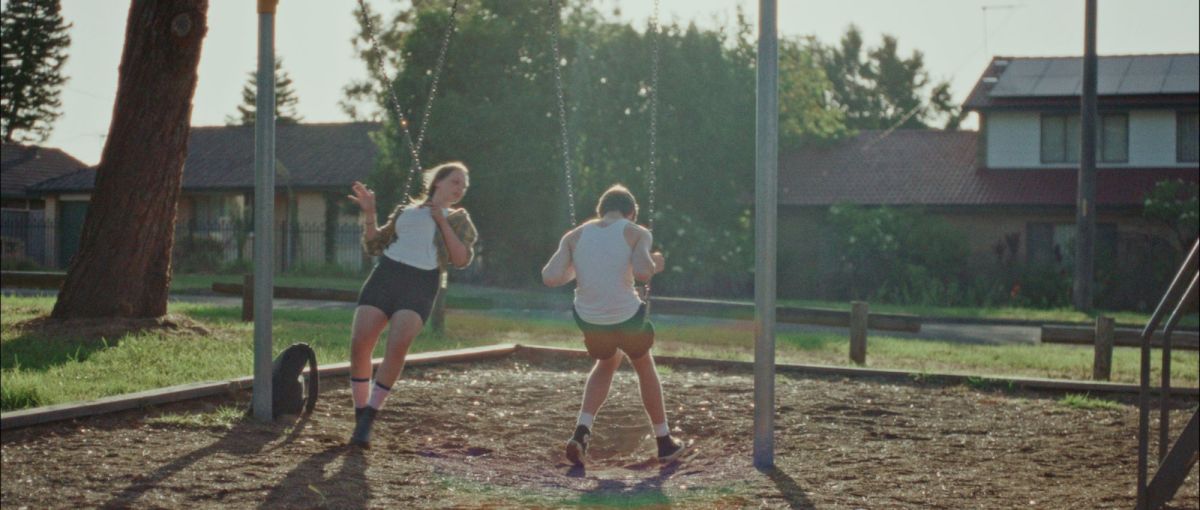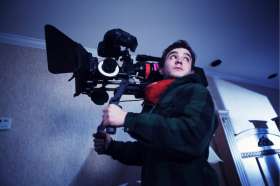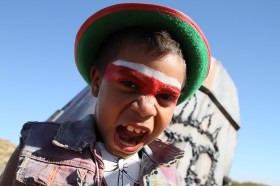While it can be rewarding to specialise in a particular creative field, it can also be easy to find yourself becoming pigeonholed – which is why developing a solid grounding in a broad range of creative and craft skills can sometimes be essential, especially for emerging filmmakers.
‘Setting a solid foundation, getting a taste of everything, being able to play creatively without all the risks involved, that’s so important,’ says screenwriter and producer Benji Menday, whose short film Bottleneck recently screened at the Revelation Perth International Film Festival.
Menday gained such experience by enrolling in the Bachelor of Arts Screen: Production at the Australian Film Television and Radio School (AFTRS), where he ‘learned the fundamentals of everything’ in his first year.
AFTRS was also where Menday met director Tatjana Hamilton, another student of the Bachelor of Arts Screen: Production.
‘In second year, Tatjana pitched this concept about kids throwing a rock off a bridge and the consequences of that action. She wanted to direct it, but she didn’t have a writer for it and I quite liked the simplicity of the idea,’ Menday says, adding that the subsequent screenplay he wrote was inspired by the communities he grew up with in the Greater Western Sydney suburb of Campbelltown.
‘Kids do dumb things, but in the community I come from, there’s already such stigma and villainisation of certain types of people that I feel like the consequences for some of us are far greater than for others, depending on what your socioeconomic background is and what community you’re a part of.’
Hamilton, who directed Bottleneck and collaborated closely with Menday while making the film, describes the short film’s central premise as an exploration of intentions versus consequence.
‘I came up with the overarching theme,’ she says, ‘about some kids throwing rocks off an overpass, which was something I’d seen a lot in the media, but we wanted to make sure we were not actually demonising these kids.’
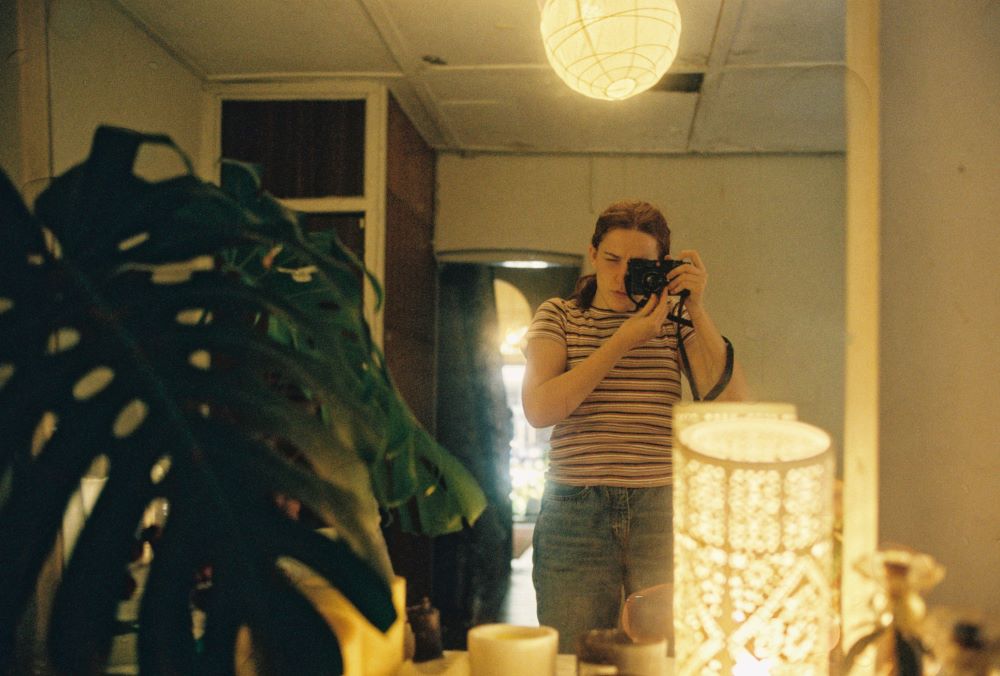
Describing Menday as ‘an amazing writer’, Hamilton continues, ‘We’re not judging any of these characters, because that’s where you make the best film: by becoming friends with your characters. Being able to explore their lives through the cinematic lens was really important for us.’
The pair felt strongly supported during their three years at AFTRS, Hamilton adds. ‘We had tutors who were constantly telling us, “You need to make this film,” and they were pushing us ever since we first started talking about it.’
Such support went well beyond encouragement and equipping Hamilton and Menday with the theory and technical skills they needed to flourish as filmmakers; it also came from their student cohort, says Menday, who is Indigenous, but didn’t learn the truth about his Bundjalung Widjabul heritage until relatively recently.
‘Mum’s from Lismore originally … but she was taken from her mum at quite a young age and so she didn’t really grow up connected with Culture. We didn’t find out until I was probably in my mid-20s. It was one of those little family secrets hidden away in a box of documents,’ he explains.
‘So AFTRS was wonderful for me, because that was probably my first setting in which I was really among other mob and learning and collaborating together.’
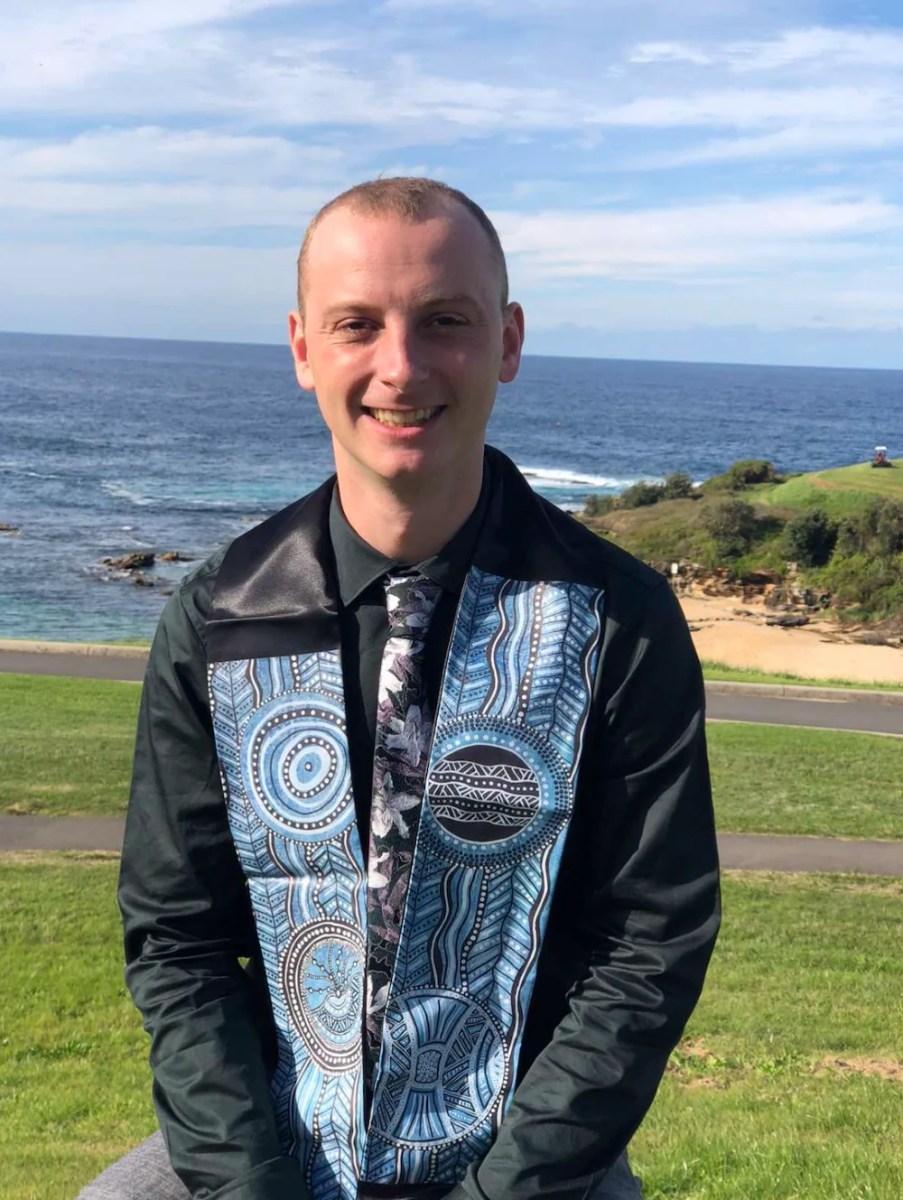
Menday and Hamilton enthusiastically recommend AFTRS’ Bachelor of Arts Screen: Production, with Hamilton saying, ‘Go to AFTRS if you want to make films, because there’s just so much support there’.
She also recommends watching some of the films made by AFTRS alums to get a sense of the quality of work being generated by the school’s students. ‘Online resources are very important for me, like, looking at the YouTube videos that AFTRS has, and especially looking at the past films people have made at AFTRS – that was a really big part of my decision to study there.’
Based on his own experience of studying at AFTRS, Menday is equally enthusiastic. ‘I was a late age student and I had not had a lot of experience with the creative industries, and I found it such a supportive environment to be in. I was always encouraged by my tutors, by my peers … it was just such a healthy and safe and encouraging environment.
‘I feel like, if I could go to AFTRS with my background and as a later age student, and walk out with all these new skills that I never had before, I think that really speaks to the quality of teaching and the facilities that AFTRS supplies,’ he concludes.
Learn more about the Bachelor of Arts Screen: Production at AFTRS. The next AFTRS Open Day takes place on Saturday 3 August 2024.
